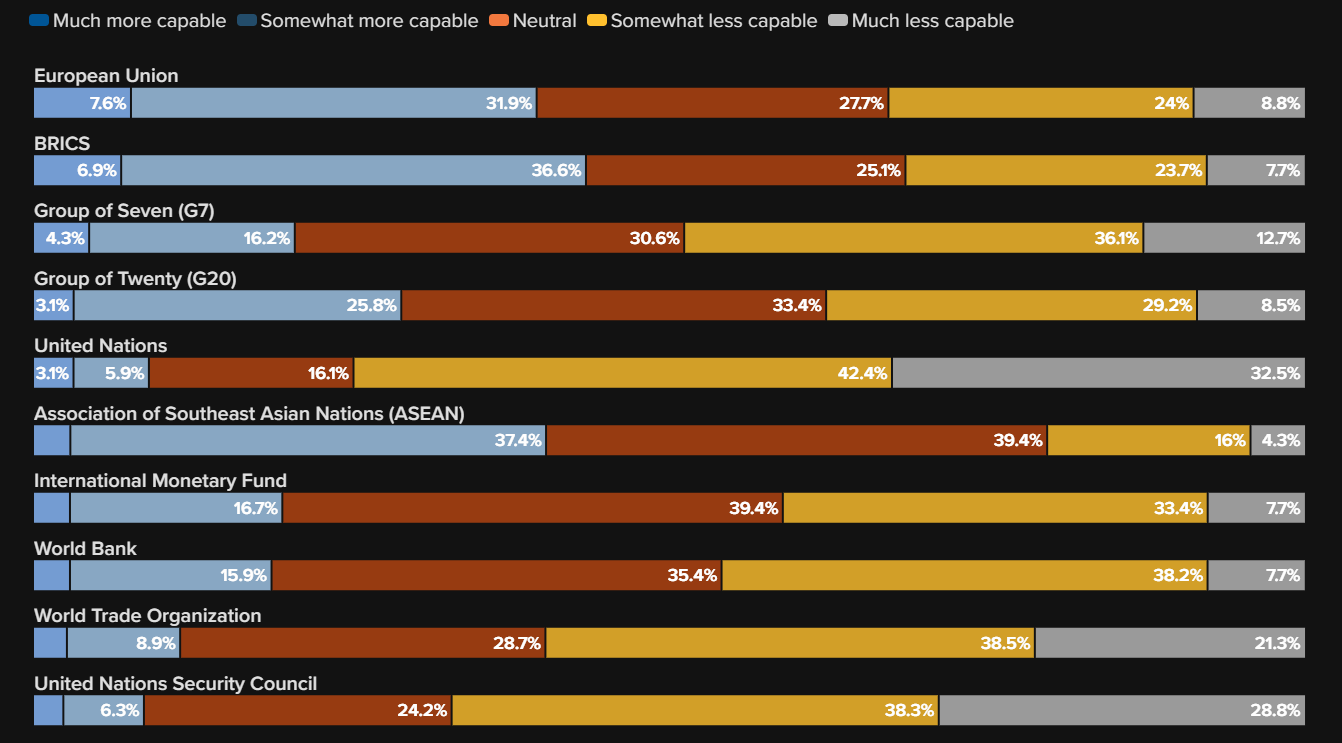Defense Forum Unveils Shape of ASEAN Japan Security Ties in 2025
Plus Munich Security Conference chatter; telecom nexus; coming undersea cable; export ban fallout; quiet cyber change; rare energy bid and much, much more.
Greetings to new readers and welcome all to the latest edition of the weekly ASEAN Wonk BulletBrief! If you haven’t already, you can upgrade to a paid subscription for $5 a month/$50 a year below to receive full posts by inserting your email address and then selecting an annual or monthly option. You can visit this page for more on pricing for institutions, groups as well as discounts. For current paid subscribers, please make sure you’re hitting the “view entire message” prompt if it comes up at the end of a post to see the full version.
For this iteration of ASEAN Wonk BulletBrief, we are looking at:
Assessing the geopolitical and geoeconomic significance of a new ASEAN Japan forum and the shape of defense ties in 2025;
Mapping of regional developments including Munich flashpoint chatter and ASEAN diplomacy green light;
Charting evolving geopolitical, geoeconomic and security trends such as export ban fallout; coming undersea cable and telecom nexus;
Tracking and analysis of industry developments and quantitative indicators including quiet cyber change; rare energy bid; rail financing and more;
And much more! ICYMI, check out our exclusive interview on what to expect at the ASEAN Future Forum hosted by Vietnam later this month.
This Week’s WonkCount: 2,346 words (~11 minutes)
Munich Flashpoint Chatter; ASEAN Diplomacy Green Light; Komodo Exercise Launch & More
Institutional Forecast; Demographic Futures & Military-Money Nexus
“By the year 2035…[37.4 percent of people believe ASEAN will be] “somewhat more capable…solving challenges core “to its mission,” according to a new survey conducted by the Atlantic Council. In the survey question, ASEAN lags only the BRICS in terms of respondents that see it as either “somewhat more capable” or “much more capable",” just ahead of the European Union and far ahead of other institutions like the UN Security Council, World Trade Organization, International Monetary Fund and World Bank. The survey includes a wide range of other questions on future global scenarios (link).
Responses to Survey Question “By The Year 2035, How Capable of Solving Challenges Core To Their Mission Do You Expect The Following International Institutions To Be As Compared To Today?”
“Japan, Singapore, and South Korea – among the world’s fastest-aging countries – have not resolved every challenge associated with a graying society, but they offer valuable lessons for how to confront this demographic shift,” argues a new article published over at Project Syndicate. The article examines several pathways to manage Asia’s demographic challenges, including extending workforce participation, increasing social engagement and improving healthcare systems (link).
Fertility Rates in Select Asia Economies
“Ancient and trusted monetary instruments that protect anonymity and freedom have returned; new institutions have been fashioned to fund the struggle against the junta’s tyranny,” observes a new paper on the role of Myanmar’s military in the country’s economy commissioned by the Special Advisory Council for Myanmar. The paper includes several recommendations beyond the country’s current post-coup conflict period (link).
Defense Forum Unveils Shape of ASEAN-Japan Security Ties in 2025
What’s Behind It
Japan and Southeast Asian states took stock of security cooperation at a key defense meeting. The Japan-ASEAN defense vice-ministerial forum was held featuring all current full members of the grouping except Myanmar, putting the spotlight on Tokyo’s evolving regional interactions this year. The event came amid a series of engagements highlighting security-related datapoints in the region. Philippine Foreign Secretary Enrique Manalo attended the Munich Security Conference and had his first in-person alliance consultations with U.S. Secretary of State Marco Rubio, while Singapore unveiled artificial intelligence initiatives during the global AI action summit in France1. Defense was also a topic of conversation during the Indonesia and Malaysia stops in the past week made by Turkish Prime Minister Recep Tayyip Erdogan, with Turkey having rolled out an “Asia Anew” initiative dating back to 20192. Meanwhile, in mainland Southeast Asia, a trip by China’s assistant minister for public security continued an elevated emphasis by Beijing on giant scam operations.
Select Key Security Developments Related to Japan’s Engagement with Southeast Asian States
The meeting was an early 2025 datapoint in Japan’s defense diplomacy with regional states. Japan had already made an early splash in its diplomacy with Southeast Asia this year with Prime Minister Shigeru Ishiba visiting both Indonesia and Malaysia in January in his first bilateral overseas visit since taking office. But ASEAN Wonk understands that other notable inroads have also continued to take shape as well. Defense-wise, apart from Japan’s publicized minilateral maritime engagements with the Philippines, approval processes have been quietly advancing on some of Japan’s previously dispatched Official Security Assistance funding to select ASEAN countries3. In one significant recent non-defense datapoint, Japan co-hosted a meet with Palestine on post-ceasefire Gaza rebuilding featuring all ASEAN countries except Myanmar, with a meeting to be held in Malaysia sometime later this year4.
Why It Matters
The engagement also shed light on key developments and details in the evolving agenda with bilateral, regional and global components (see originally generated ASEAN Wonk table below on notable datapoints and additional specifics. Paying subscribers can read on for more on what to expect and future implications in the rest of the “Why It Matters” and “Where It’s Headed” sections, along with paid-only sections of the newsletter as usual).












